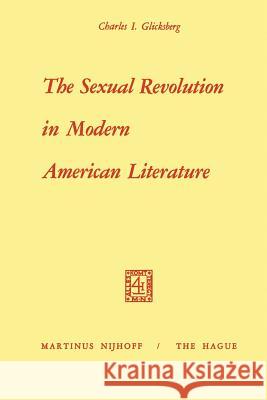The Sexual Revolution in Modern American Literature » książka
The Sexual Revolution in Modern American Literature
ISBN-13: 9789024750368 / Angielski / Miękka / 1970 / 257 str.
1. The Dialectic of the Sex-Motif in Literature Sex is a function of culture; in literature today it plays only a small though aggressively righteous part. Nature, long held in bondage, periodically breaks out in revolt, but its victory is never complete. In every society, prim- itive as well as modem, the sexual instinct is for good or evil always subject to some measure of regulation and restraint. In literature, where the battle between love and sex, spirit and flesh, is fought out in terms of symbolic action, the writers support their cause, for or against sexual freedom, with varying degrees of evangelical ardor and outspokenness. On this issue there is no unanimity for the simple reason that American culture is not unified in its beliefs concerning the nature of man. The central conflict between instinctual needs and the claims of the ideal, between physical desire and the inner check, between Dionysus and Christ, goes on all the time. Sublimation is the cultural process whereby sexual energy is deflected from its biological source and diverted into spiritually "higher" and socially more useful channels. But sublimation is for most men hard to achieve. As civilization grows more complex, the individual is exposed to a series of increasingly severe moral strains. Pitted against Nature while subject to its laws, he must hence- forth be governed in his behavior by inner as well as outer controls.











